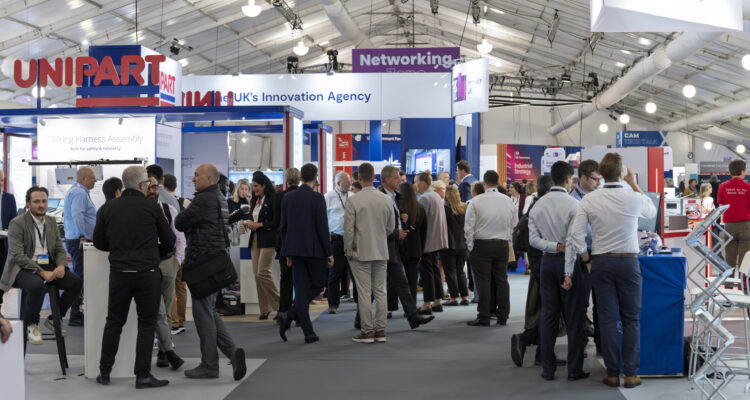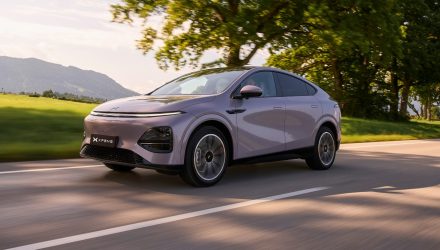Cenex Expo 2025 returned to UTAC Millbrook earlier this month, attracting almost 4,000 delegates from the mobility, energy, and technology sectors for two days of high-profile collaboration. The event featured more than 195 expert speakers across six theatres and over 230 exhibitors presenting the latest in Net Zero and Connected Automated Mobility (CAM) solutions.
The Expo was formally opened by Rt Hon. Sarah Jones MP, then Minister of State for the Department for Energy Security and Net Zero and the Department for Business and Trade (DBT). She outlined the Government’s long-term vision for automotive growth and announced a new DRIVE35 funding competition aimed at closing the gap between research and industrialisation, accelerating pilot-scale production, and fast-tracking new technologies to market.
“Through DRIVE35, we are launching a new scale-up initiative to address the so-called valley of death between R&D and industrialisation,” said Minister Jones. “This will fast-track new technologies, making our innovation capabilities a commercial reality.”
On the second day, Lilian Greenwood MP, then Minister for the Future of Roads, visited the show, touring key stands before travelling in a Zero-Emission Heavy Goods Vehicle (ZEHID) to the train station – a demonstration of the progress being made in decarbonised freight transport.

Rt Hon. Sarah Jones MP opens Cenex Expo 2025, setting out the Government’s vision for automotive growth and innovation
Innovation and Industry Collaboration in the Spotlight
The exhibition floor and outdoor demonstration area highlighted a wealth of world-first innovations and industry partnerships, including:
- Equipmake unveiled the ZEPA V2V, a vehicle-to-vehicle charging system enabling electric fire engines to run continuously with zero emissions by drawing power from another vehicle. Developed with Emergency One, London Fire Brigade, and Cenex, and funded by DBT through the APC, trials are due to begin later this year.
- Alexander Dennis launched its autonomous electric bus, the Enviro100AEV. Two buses will enter trial service in Cambridge this autumn, linking park & ride sites with the Biomedical Campus. Powered by Fusion Processing’s CAVStar system, the CCAV-funded project will continue until March 2026 to test real-world CAM deployment.
- The Faraday Institution announced a £9 million investment in two new research projects beginning in October 2025. These will focus on advancing battery formation, ageing, and testing to reduce gigafactory production time and energy use, while developing next-generation Li-rich 3D cathode materials to enhance performance and sustainability in UK battery manufacturing.
- The Airside Automation Group, launched by International Airlines Group (IAG), Heathrow Airport, Aer Lingus, Aurrigo, and Fusion Processing, brings together airlines, airports, regulators, and technology developers. Convened by Zenzic, the coalition aims to accelerate CAM adoption, transform airside operations, and position the UK as a global leader in airport automation.
- Quattro Plant, EV Parts, and iNetic Traction introduced a fully electric mobile elevated work platform (MEWP) for the construction industry. Delivering zero emissions, advanced telematics, and vehicle-to-load power, the upcycled machine offers a cleaner, quieter, and more sustainable alternative to diesel equipment, with strong trial performance.
- FR8 Technology and partners revealed the UK’s first walk-in heavy-duty electric truck, the Ultra-Low Floor Electric Truck. Designed for urban logistics, it delivers safer, faster, and more efficient operations, featuring FR8 e-DRIVE technology. The truck improves productivity by 30%, boosts payload capacity by up to 1,000kg, and increases cargo space by 50%.

Delegates engaged in expert-led seminars exploring strategies to accelerate the UK’s transition to Net Zero and Connected Automated Mobility.
Seminars Address Future Mobility Challenges
The six-theatre seminar programme provided delegates with practical and forward-looking insights into the challenges and opportunities shaping future mobility. With a strong emphasis on delivery and scale-up, sessions examined the UK’s route to commercialising CAM following the Automated Vehicles Act 2024, strategies for decarbonising HGVs and fleet operations, and the development of circular, resilient supply chains for electrification.
Attendees also explored emerging innovations – from hydrogen mobility and AI-driven solutions to software-defined vehicles – while discussions covered equitable charging infrastructure and the creation of next-generation energy networks.
High-profile contributors included Mike Hawes (SMMT), Tom Adeyoola (Innovate UK), Ian Constance (APC), and Graham Zebedee (DBT), who shared strategic perspectives on the alignment of policy, technology, and investment to accelerate the UK’s transport transition.
Reflecting on the success of the event, Robert Evans, CEO of Cenex, said: “Cenex Expo 2025 was a powerful demonstration of the UK’s position as a leader in clean and connected transport innovation. With a fantastic attendance and a dynamic mix of speakers, exhibitors, and live demonstrations, we’ve shown what collaboration can achieve. The conversations and partnerships sparked here will help take innovation from pilot to scale, driving meaningful progress towards Net Zero and a smarter, more sustainable transport future.”







